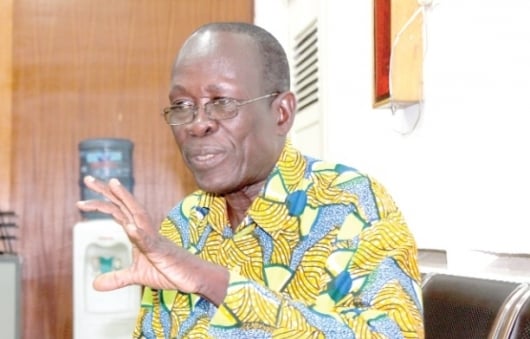The Ghana Federation of Labour (GFL) has made a fervent appeal for national unity and constructive political engagement, specifically targeting the opposition New Patriotic Party (NPP). The GFL’s Secretary General, Mr. Abraham Koomson, criticizes what he perceives as the NPP’s obstructive political tactics, which he argues undermine the government’s efforts to address economic hardship and promote national development. Mr. Koomson contends that the NPP’s persistent negativity and attempts to undermine the ruling government are detrimental to Ghana’s progress and democratic health. He emphasizes the need for collaborative efforts across the political spectrum to tackle the nation’s challenges and build a prosperous future for all Ghanaians, irrespective of political affiliation.
Mr. Koomson highlights what he describes as a palpable shift in governance under President John Dramani Mahama’s leadership, contrasting it favorably with the previous administration. He urges all Ghanaians to support the current government’s initiatives, emphasizing that the benefits of successful governance extend to all citizens, regardless of their political leanings. He accuses the NPP of hypocrisy, labeling them “Doctor Do Nothing” and pointing to their alleged mismanagement of key sectors like banking, manufacturing, agriculture, and healthcare during their time in power, further claiming they left behind a legacy of burdensome taxation and pervasive corruption. Despite this, he argues, the NPP continues to criticize the current administration while simultaneously attempting to take credit for any positive economic developments.
The GFL Secretary General specifically challenges the NPP’s claims regarding the resolution of Ghana’s energy crisis, asserting that the issue was effectively addressed under former President Mahama. He also accuses the NPP of routinely taking credit for projects initiated by previous governments. This tendency to claim ownership of successes while deflecting responsibility for failures, according to Mr. Koomson, demonstrates a lack of integrity and a disservice to the Ghanaian people. He paints a picture of the NPP as offering grand solutions while in opposition but failing to deliver on their promises when given the opportunity to govern.
Mr. Koomson points to the recent appreciation of the cedi as evidence of the Mahama administration’s effective economic management, directly refuting the NPP’s attempts to attribute this positive development to their own previous policies. He dismisses the NPP’s claims of economic achievement during their tenure as “absurd, irritating, and an insult to the integrity of Ghanaians,” urging them to instead reflect on what he terms their “scary eight years” in power. This sharp critique underscores the deep divisions within Ghana’s political landscape and the ongoing battle of narratives surrounding economic performance and policy effectiveness.
The GFL’s appeal extends beyond simply criticizing the opposition. They offer a clear call to action, urging President Mahama, Vice President Professor Jane Naana Opoku Agyemang, and their Cabinet to remain focused on their mandate, implementing transformative policies without being deterred by opposition tactics. This encouragement to stay the course suggests a belief that the current government is on the right track and that maintaining this trajectory is crucial for Ghana’s future. It also implicitly acknowledges the potential for political distractions to impede progress.
Finally, the GFL calls on the public to remain vigilant against misinformation and urges the NPP to take responsibility for their actions and refrain from claiming credit for the achievements of others. Mr. Koomson concludes by contrasting the perceived accomplishments of the current administration in a short period with what he characterizes as the failures of the previous NPP government over an extended period, further emphasizing the need for honest appraisal of performance and a commitment to constructive, rather than obstructive, political engagement. This final point serves as a summary of the GFL’s overall message: the need for unity, accountability, and a focus on genuine progress for the benefit of all Ghanaians.


